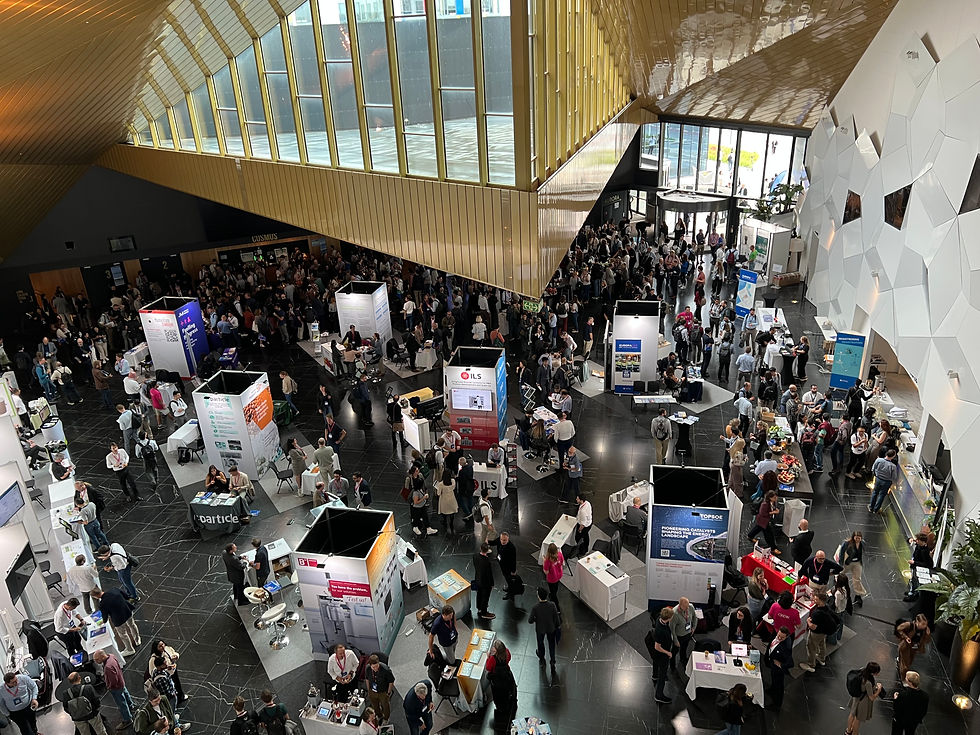Press release: ēQATOR highlights electrified catalysis at EuropaCat 2025
- Sep 19, 2025
- 2 min read

By Rebecca Sinai
EU PROJECT ēQATOR HIGHLIGHTS ELECTRIFIED CATALYSIS AT EUROPACAT 2025
5 September 2025
Electrifying chemical processes and using renewable carbon sources are crucial steps to cut emissions in the chemical sector. At the 16th European Congress on Catalysis (EuropaCat 2025) in Trondheim, Norway (31 August – 5 September), the ēQATOR project and its sister initiatives showcased how electricity can power catalytic reactions and enable a greener chemical industry.
Following the successful joint workshop “The Electric decade”,
ēQATOR joined forces with the projects e-Coduct, EReTech, TITAN, and STORMING to co-organise two special sessions on Electrification of Catalytic Reactions and Reactors (2 September). Chaired by Prof. Joris Thybaut (Ghent University) and Dr. Marilena Radoiu (Microwave Technologies Consulting), the sessions provided a platform for cutting-edge research on electrified catalysis and reactor technologies. In the session “Electrification of reactors – 2”, ēQATOR researchers from MCI Innsbruck and University of Stuttgart presented their work under the title “Electrification of Process Industry – Insights into ēQATOR’s Reactor Concept” (authors: Martin Wilhelm Philipp Pichler, Luca Nohel, Verena Schallhart, Enes Caliskan, Elias Klemm, Lukas Möltner). Visitors were also able to meet ēQATOR representatives at a joint booth throughout the week.
Beyond the joint sessions, ēQATOR partners contributed multiple scientific presentations. MCI Innsbruck and the University of Stuttgart shared kinetic modelling and experimental results on methane dry reforming with Ni-based coatings, highlighting how precise resistive heating can mitigate coking and support reactor scale-up. IRCELYON (CNRS/Université Lyon 1) showed the effects of temperature gradients and catalyst formulation on microwave-heated catalytic reforming. RANIDO (Czech Republic) presented new catalyst developments to improve activity and stability in syngas production. SINTEF (Norway), the project coordinator, addressed the effects of real-world biogas impurities (O₂, H₂S, NH₃) on catalyst performance, underlining the importance of durability for industrial deployment. Project partners from Johnson Matthey also exhibited, showcasing their perspectives on scaling electrified reactors to industry.
Richard Heyn, coordinator of the ēQATOR project, highlighted the significance of the event: “Europacat was a great opportunity for ēQATOR to showcase its innovative advances within catalyst design and electrically-heated catalytic reactors to the breadth of academic and industrial catalysis researchers in Europe”
These contributions illustrate ēQATOR’s ambition to develop electrically heated catalytic reactor technologies for efficient biogas-to-syngas conversion, supporting sustainable methanol, hydrogen, and synthetic fuels.
Learn more: www.eqator.eu
Media contact: Rebecca Sinai, Steinbeis Europa Zentrum, rebecca.sinai@steinbeis-europa.de




Comments